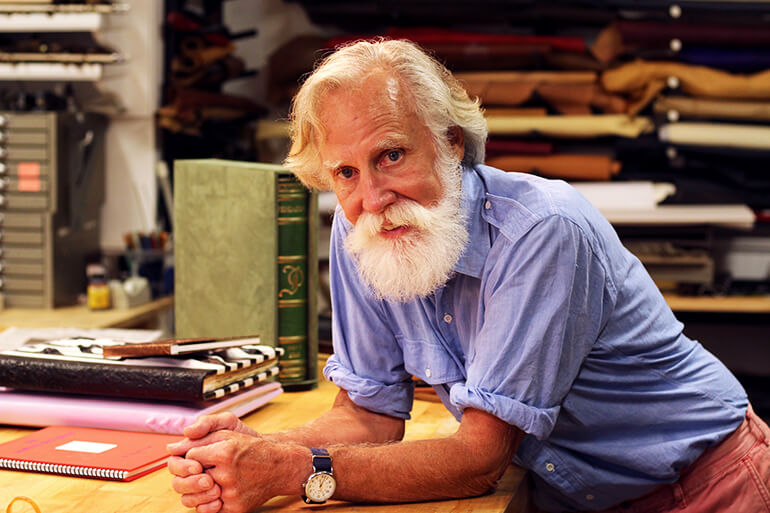In an increasingly digital landscape where reading from tiny screens has become commonplace, the value and beauty of books may be lost on some, but a grand and comprehensive home library will always denote status and taste. After all, as George R.R. Martin writes in A Dance with Dragons, “A reader lives a thousand lives before he dies…The man who never reads lives only one.”
Among this diminishing cadre of worldly, curious book lovers–the men and women who feel compelled to surround themselves with hundreds or even thousands of dusty tomes–even fewer display only the most beautifully bound, gilded and tooled volumes.
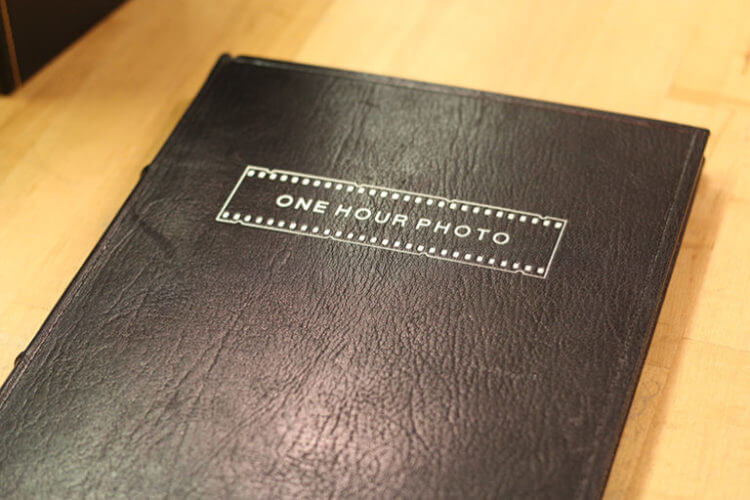
East Hampton bookbinder Paul Vogel understands this rare breed of person, and for more than 20 years his Vogel Bindery has served some of the world’s wealthiest and most discriminating bibliophiles. Boasting more than 50 years experience, and traditional techniques virtually unchanged for three centuries, Vogel handcrafts fine books that rival history’s most elegant lexicons.
Whether he’s binding one-of-a-kind mementos to commemorate special occasions, restoring deteriorating books nearly lost to time, or solving problems with custom leather desk accessories, Vogel has built an unimpeachable reputation for startling beauty and quality.
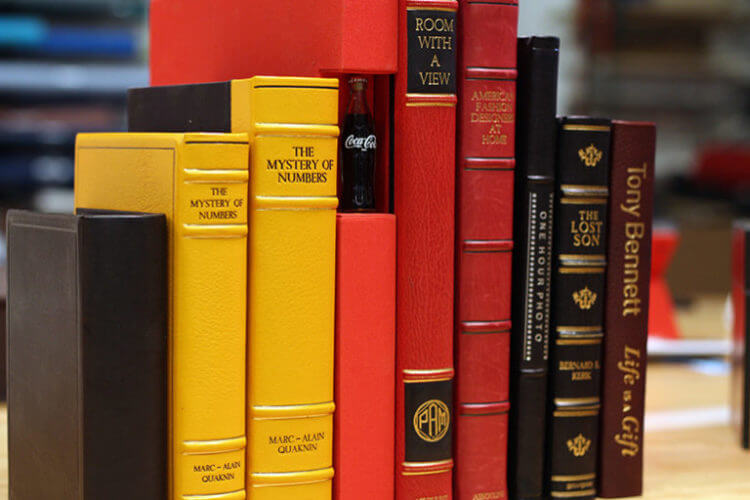
It’s not every day one meets a man who’s created luxurious slipcases to house Oprah’s prized collection of first editions, constructed albums for Mayor Michael Bloomberg‘s press clippings, or bound copies of 20 different scripts for Robin Williams over the years before his death. Just encountering someone who makes his living from such an age-old craft is a rarity. Indeed, bookbinders are scarce, let alone those who manage to support a family with no other source of income.
“I don’t know how many people are doing this and can pay the bills,” Vogel says during a lively two-hour conversation in his East Hampton bindery. With his slim frame, white hair and stately beard to match, Vogel is the perfect embodiment of his unique vocation, and he never grows tired of talking shop.
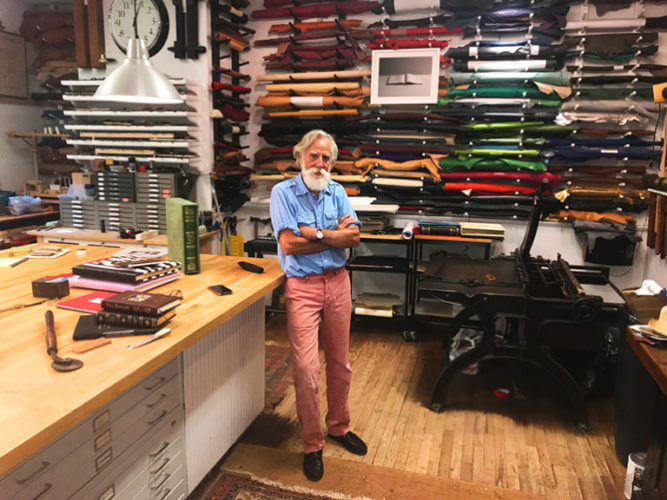
The artisan’s path began while studying book design at Pratt in 1969, where he learned the particulars of setting type, graphics, covers, page design and construction according to the dominant practices of the time. But before completing his studies, Vogel visited Columbia University’s Rare Book School where he was told to learn from the old ways and bind a book by hand.
“I remember enjoying it,” he says, but Vogel enjoyed lots of new experiences at that young age. “It wasn’t earth-shattering.” He traveled after graduation but eventually found his way back to New York and the art of traditional bookbinding.
Soon he met preeminent bookbinder Bernard Middleton and spent a day with him talking about the business and the craft. “I just liked the look of the occupation,” Vogel recalls, adding, “The look of the bindery, the people.” Specifically, Vogel says he was taken with Middleton’s thirst for knowledge, inspiration and new things, despite being at the top of his game. “You’re always learning as long as you keep your mind open,” Vogel points out, explaining what drew him to bookbinding.
Now set on a path, Vogel apprenticed at various NYC binderies and found that each had certain strengths he could emulate. Some binders were masters of cloth and paper; some worked exclusively in leather; some were painstakingly meticulous, while others showed him where he could work more quickly without compromising quality. “Parts of the process didn’t need to be a Japanese tea ceremony,” Vogel says, describing how he put all that knowledge together and began doing jobs on his own.
“It was a good time to start bookbinding because people were of the mind to have books bound,” Vogel notes while ruminating about how much has since changed. With each passing decade, he says fewer people thought about bookbinding in the same terms, and fewer still actually continued the tradition. “Now most photos don’t even leave your computer.”
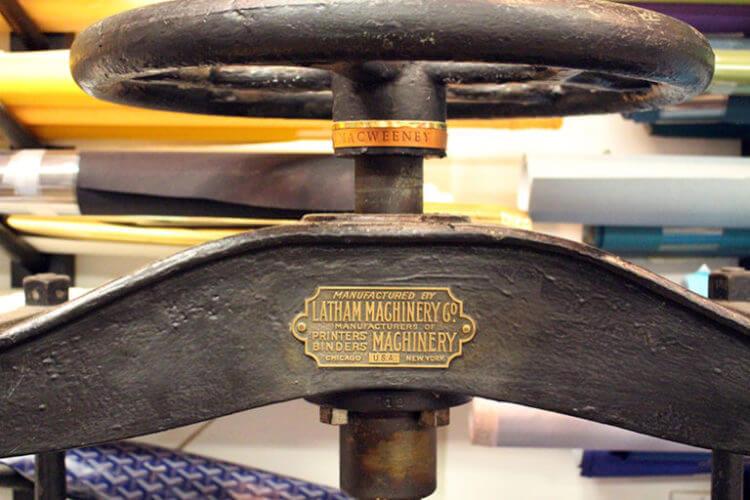
Vogel says he achieved a level of mastery about seven years after starting the work in earnest, though he never stops learning new things. “I had the technical skill, but I began getting so many unique projects and challenges,” he says, remembering that he began using leather for achieving interior designers’ requests beyond simply binding books. “That was an exciting learning period.”
Today, Vogel does all manner of projects, and he’s thrilled to dive into new aesthetics and materials well outside stamped leather and gilded pages. “You meet people from all walks of life,” he says, listing projects for designers, musicians and sports figures, including shock rocker Marilyn Manson, Chuck Berry and Tiger Woods.
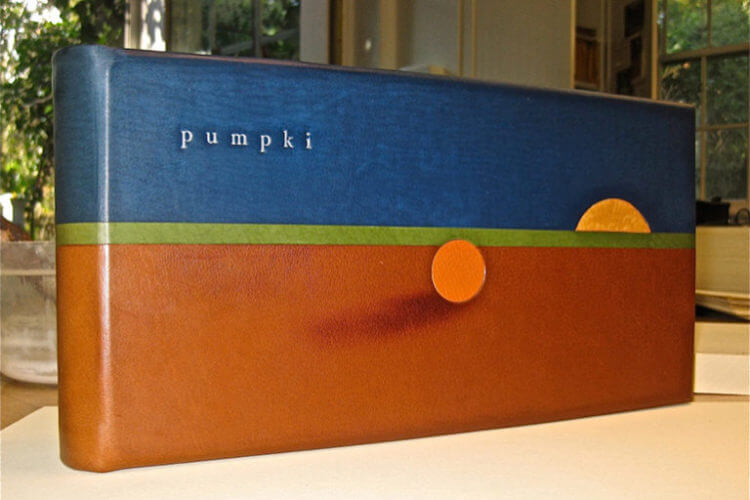
“Making a book is like stretching a canvas…the cover is what you paint,” Vogel says. “You can go in any direction–we’ve done books with glass and rubber, and metal set into the cover,” he continues, also pointing to a slipcase he did with a removable miniature Coca-Cola bottle magnetized into the spine. “People think bookbinding is very traditional, but it can be very contemporary, depending on the client’s whims.”
As Vogel’s business has grown, so has his family. His wife Abby paints beautiful custom images into various projects, and she’s found a real penchant for book restoration. Their two daughters–Hadley, 30, and Hannah, 21–grew up learning the art of bookbinding, and the eldest has started creating exquisitely bound custom books for artists.
Like all vaunted traditions and talents, it appears Vogel’s legacy is in place to last long into the future, right alongside the enduring books he binds.

